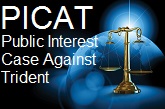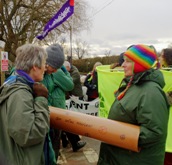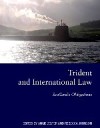Kevin Brown
Detective Chief Inspector
Major Crime Unit
Taplow Police Base
124, Bath Road
Taplow
SL6 0NX
Non Emergency Tel No: 101
June 1st 2014
Dear Ms Zelter,
Apologies this letter has taken slightly longer than anticipated, I hope you received my voicemail as to the very difficult case I had to investigate that has taken some time to resolve.
As spoken, this letter is to confirm the position of Thames Valley Police (TVP) in regards to the allegations made as a result of the organised protest activity held outside Reading Police Station on 8th February 2014.
There were multiple separate submissions of information/complaints of crimes made to TVP on that day which were recorded under one inclusive crime number and my findings are as follows:
Crime Related Incident –CRI 4402480/14
With reference to this Crime related incident I have evaluated the report and 54 witness allegations/complaints /submissions within, which suggest, from the protestors perspective, crimes committed by the UK state.
In essence these fall into 3 broad categories
Manufacture and Possession of Nuclear weapons
Offences of war crime, genocide, crimes against humanity and a breach of the Nuclear non-proliferation treaty
Transportation of Nuclear weapons.
I have sought counsel and guidance from TVP Legal Services, Ministry of defence Police and MOD legal services; and from the Crown Prosecution Service.
These authorities make reference to the International Criminal Court Act, International Court of Justice Opinion, Hutchinson v Newbury Magistrates and R v Jones as guiding principles around this subject area.
Ostensibly the issue is whether anything Her Majesty’s Government (HMG) does in relation to Nuclear weapons is unlawful and therefore capable of amounting to a criminal offence under UK domestic law.
Research and findings:
Primarily, the complainants seem to rely on the 1996 Opinion of the International Court of Justice and the International Criminal Court Act 2001.
The complaints suggest that ICJ is authority for the idea that the mere possession or possible threat of use of nuclear weapons is illegal. After review I believe the ICJ opinion doesn’t state this, in fact it suggests any judgment on the legality of either the use or threatened use of such weapons would have to be made when in possession of all the facts, therefore after the event –which is not the case here. This is a fundamental flaw to the allegations made.
Legality and the ICJ’s opinion was well considered and conclusively determined by the Divisional Court in Hutchinson v Newbury Magistrates’ Court (2000) 122 ILR 499. In turn the Magistrates’ Court, Crown Court and then the Divisional Court all rejected the contention put forward that the activity at Aldermaston was unlawful in customary international law as demonstrated by the opinion of the ICJ and therefore unlawful in English domestic law. The Court concluded that there was no established principle of customary international law that the manufacture and possession of nuclear weapons was unlawful; and that even if there was, this principle had not been incorporated into English domestic criminal law.
This appears to have been endorsed by the opinions of the House of Lords in R v Jones and others [2006] UKHL 16
With regard to the International Criminal Court Act 2001 and establishing criminal offences, Section 51 makes it an offence against the law of England and Wales for a person to commit genocide, a crime against humanity or a war crime, however, the wording of all these offences require an ‘attack’ to be launched. The activities at AWE, I believe, are so remote from the test required that the articles and definitions contained within aren’t close to being met.
Similarly, whether or not the UK is complying with obligations under the Non Proliferation Treaty or failure to observe it, in itself, does not actually result in a recognised domestic criminal offence that requires investigation.
The transportation of nuclear weapons is not in itself a breach of the criminal law. The Defence Safety and Environment Authority will be best placed to deal with any specific allegations of breach of health and safety law.
Summary,
Given the above and the generic and non specific nature of the criminal offences being alleged, it is therefore established, in my view and those consulted, that as a matter of English law, the manufacture and possession of nuclear weapons by or on behalf of the UK government is not a criminal offence. Likewise the criteria for an offence of genocide, war crimes and crimes against humanity are not met. The alleged breach of the nuclear non-proliferation treaty would not constitute an offence against domestic law and the transportation of Nuclear weapons, if they breached Health and Safety Law would be dealt with by other agencies.
It follows that there is no duty for TVP to investigate such allegations. The Force Crime Registrar has been consulted regarding the Force’s obligations in relation to crime recording. I have been advised that because the allegations relate to state based crime the points to prove an offence must be established before a notifiable crime is recorded. For the reasons set out in this report I am satisfied that based on the available information the criteria for recording a notifiable crime have not been met.
A record of these complaints will be retained as a crime related incident, without further investigation, unless I am made aware of evidence of any specific criminal offences under English domestic law which have been committed or further factual or legal changes that would necessitate a review.
I understand this may not have been the outcome you and your associate group members were eager for but I do hope this makes the current situation clear from an investigative perspective and , as discussed, you could make the group aware of this correspondence.
Yours sincerely,
Kevin Brown
DCI
————————————————————————————————————————————-












 Nuclear weapons crime in the UK has been reported to Thames Valley Police.
Nuclear weapons crime in the UK has been reported to Thames Valley Police.










